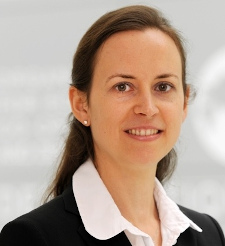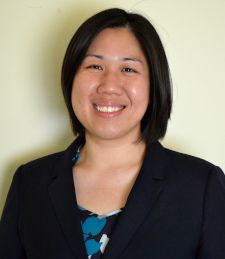MPC Seminar on ‘Skilled Migration and Education’
Postponed to new dates tbd
As part of its seminar series, the Migration Policy Centre will host the following presentations:
“Changing Governance in Global Talent Competition: From Attraction to Selectivity and Retention”
presentation by Lucie Cerna, University of Oxford, and Meng-Hsuan Chou, NTU Singapore
Abstract
Talent migration is seen as a lifeline for advanced economies. By recruiting skilled and talented professionals from abroad, key economic and knowledge institutions are able to retain a lead in international competitions to innovate. At the same time, economic downturns and rising populism have generated growing tensions between inward-looking policies, which focus on improving the skillsets of citizens, and those seeking to bring in the best-and-brightest, particularly for key performing sectors. To what extent have these developments in the recent decade affected governance in the global competition for talent? Are policymakers still going forward with liberalising their migration policies for promising talents, or just for those with demonstrative track records? Or have they decided to close these avenues to concentrate on skilling their own nationals?
In this paper, we suggest that there is indeed a shift in how policymakers around the world strategise in the global competition for talent, which can be seen in how they think about and design talent migration policies. To describe this shift, we differentiate between two main stages of talent migration: attraction and retention. The prevailing features of many talent migration policies around the world, we argue, are those concerned with attracting talents (foreign or potential returnees) with less emphasis placed on retaining them. This is now changing. In recent years, we show that there are noticeable efforts to revise existing policies and (re-)introduce new ones revolving around selectivity. What these policies have in common are the specificities in the requirements for work permit, careful and greater selectivity to determine what talents bring to the host country and their potential for integration. This policy change represents a different thinking in talent migration governance: it is no longer mainly about attracting as many qualified talents as possible, but more about attracting and retaining those with the greatest likelihood to continuously contribute to the host society.
“Immigrant student achievement: Cross-cultural approaches to educational policy reform”
presentation by Louis Volante, Brock University
Abstract
The challenges posed by international migration are particularly acute for public education systems that are responsible for providing schooling for immigrants and refugees. Not surprisingly, immigrant students around the world tend to underperform relative to their non-immigrant peers, as evidenced by international measures of student achievement such as the Programme for International Student Assessment (PISA) (OECD, 2015). Comparatively lower literacy and numeracy skills tend to follow first- and second-generation immigrant students into adulthood, which in turn translates into lower paying job prospects and health outcomes. Yet the international research is equally clear that countries with well designed education policies can also possess favourable immigrant student outcomes (Volante, Klinger, & Bilgili, 2018).
This presentation examines the relationships amongst education policies, cultural diversity, and student outcomes across a range of European nations (i.e., England, Germany, Italy, Sweden, Finland, Netherlands, Republic of Ireland) as well as more traditional countries of immigration such as the United States, Canada, Australia, and New Zealand. The session analyzes the relative role of research in the construction of “migrant friendly” education policies. Most importantly, the discussion clearly differentiates between evidenced-based and opinion-based policies while also situating macro-political developments as a key determinant of educational inequality. Country specific challenges related to issues such as undocumented migrants, regional variation in student outcomes, country of origin of migrant students, and cultural differences in educational outcomes will also be discussed.

Lucie Cerna is a Research Associate at the Centre on Migration, Policy and Society (COMPAS), University of Oxford. She received her DPhil in Politics from the University of Oxford. Her research interests include the political economy of skilled migration, the internationalisation of higher education, comparative public policy, European Union politics and global governance. More information about her research and publications can be found at www.luciecerna.com.

Meng-Hsuan Chou holds the Provost’s Chair in Public Policy and Global Affairs at NTU Singapore. She received her PhD in Politics and International Studies from the University of Cambridge. Her research focuses on the transformation of the state through inter-state and inter-regional policy cooperation in areas of contemporary salience such as migration, academic mobility, and higher education. More information about her research, publication, and teaching can be found at www.menghsuanchou.com.

Louis Volante (PhD) is a Professor of Education at Brock University, Professorial Fellow at UNU-MERIT, and President of the Canadian Educational Researchers’ Association (CERA). His current research is focused on education policy development and analysis; international assessments, metrics, and transnational governance; social inequality within and across education systems; and large-scale education reform. Dr. Volante is a frequent invited speaker around the world and has worked as an advisor and evaluator for various Canadian, American, British, and European government departments.